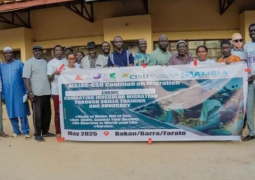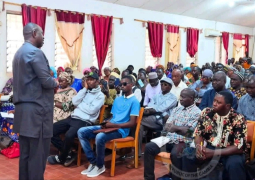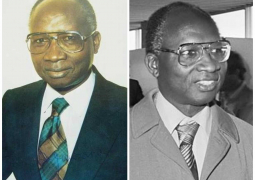
The five- day training attracted eighteen participants from NCRG. It is aimed at equipping community radio personnel with the requisite knowledge on Climate Change and Early Warning System.
At the opening, Ebrima Sillah, Minister of Information and Communication Infrastructure emphasised the role of community radios in helping communities, especially the underserved communities to get the right information on climate variation as related to rainfall pattern.
This, he added, is critical in ensuring the country attains food self-sufficiency.
“Radio stations broadcasting on local language are important in helping government realise its set goals in national development plan as well as helping farmers access information related to climate change.”
Minster Sillah assured that government will continue to work with The Gambia Press Union and NCRG to strengthen the capacity of community radio workers so that the right information is given to communities to help them make informed choices on climate variation.
Sanna Dahaba, executive director for NDMA said the capacity to anticipate and analyse possible disaster threats is a pre-requisite for prudent decision-making and effective actions.
He recognised community radio stations as successful medium for expression and information dissemination to local audiences. This, he said, will enable them to acquire capacity building on climate change and early warning system.
Yusupha Bojang, president for NCRG described the role of community radios in information dissemination as crucial.
Subsequent to that, he said, with the aims to execute their functions effectively, PIWA and NCRG deem it necessary to train community radios workers on early warning system and its operating mechanisms to ensure proper dissemination of information to the public.
“The training will help community radio workers to develop information of early warning and broadcasters to prepare their audiences,” he said, while thanking the UNESCO for funding the workshop.
Lamin Jahateh, UNESCO-Gambia project officer described the training of journalists on disaster reporting ahead of the rainy season as important considering the flood situation in the country.
Jahateh, also a programme manager at The Gambia Press Union (GPU) said for community radio journalists to get knowledge on disaster management process, it is essential to ensure that they are able to translate the message to their various audiences to know how to prepare and adapt to disaster.
Brand Faye, officer from PIWA acknowledged the role of community radio stations in disaster management process.
He said at the end of the training, participants are supposed to be more familiar with the operative mechanism of early warning system and report better on disaster prevention in the context of climate change.





